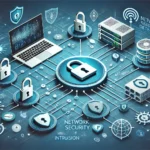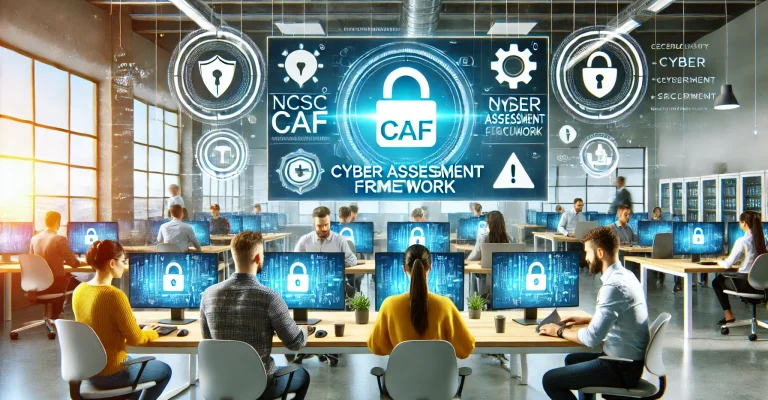Introduction to Cyber Warfare
Cyber warfare brings to mind a modern battleground, invisible yet omnipresent, where keystrokes hold the power of bullets and data is the new territory to conquer. Independent hacking groups have emerged as the unconventional infantry of this digital era, deeply influencing geopolitical conflicts with their clandestine operations. This new frontier presents a host of ethical, legal, and security challenges that the international community must navigate with care and collaboration.
Israel’s Surveillance Controversy: A Case Study in Cyber Ethics
One significant episode in the cyber warfare narrative is Israel’s internal turmoil regarding the alleged misuse of the Pegasus spyware developed by NSO Group. Reports suggest the tool was deployed against Israeli citizens without due authorisation, sparking a nationwide, and indeed global, conversation on the ethical dimensions of cyber surveillance tools in the context of national security. The unfolding drama not only sheds light on the need for stringent oversight but also poses pressing questions about the trade-off between privacy and protection.
The Pegasus Spyware and Its Implications
Pegasus is a sophisticated piece of spyware capable of accessing almost any data on a target’s phone, including messages, emails, and calls, without the user’s knowledge. The Israeli government’s alleged use of Pegasus against its own citizens has raised significant ethical concerns. The incident has prompted debates on the moral responsibilities of states when deploying such powerful surveillance tools, especially against their populace.
Legal and Ethical Dilemmas
The misuse of Pegasus has exposed the potential for abuse inherent in cyber surveillance. Governments must balance the need for security with the protection of civil liberties. This case underscores the importance of legal frameworks and oversight mechanisms to prevent the violation of privacy rights. Moreover, it highlights the need for international norms governing the use of cyber tools to ensure they are used responsibly and ethically.
Ukraine: Cyber Defence and Independent Hacktivism
The cyber front of the Ukraine conflict is emblematic of the changing nature of warfare. Ukrainian hacktivists have risen as digital Davids against a Goliath, wielding their cyber slings with precision and patriotism. Their targets range from enemy state propaganda to critical infrastructure, delineating a form of cyber defence that supplements the nation’s military efforts. This phenomenon underscores the potential for independent hacking groups to positively contribute to national security, albeit with legal and ethical complexities.
Hacktivism in Action
Ukrainian hacktivists have played a crucial role in the country’s defence, launching cyberattacks on Russian military systems, disinformation campaigns, and critical infrastructure. These efforts have disrupted enemy operations and provided vital intelligence to the Ukrainian government. Hacktivism has thus emerged as a significant force multiplier in modern conflicts, highlighting the power of cyber capabilities in national defence.
The Challenges of Hacktivism
While hacktivists can be valuable assets, their actions can also lead to unintended consequences. The lack of formal oversight and coordination with official military operations can result in collateral damage, such as attacks on civilian infrastructure. Additionally, the legal status of hacktivists is often murky, raising questions about accountability and the potential for retaliatory actions. Governments must navigate these complexities to harness the benefits of hacktivism while mitigating its risks.
Historical Precedents: The Long Reach of Hackers in Conflict
The history of cyber warfare is replete with instances where hackers have left indelible marks on the course of conflicts. The 2007 cyberattacks against Estonia set a precedent, unveiling the cyber capabilities of state and non-state actors alike. The subsequent Arab Spring was another testament to the power of cyber activism, with social media and hacking serving as catalysts for political change.
The Estonia Cyberattacks
In 2007, Estonia experienced a series of cyberattacks that disrupted government services, financial institutions, and media outlets. These attacks, widely attributed to Russian actors, highlighted the vulnerability of national infrastructure to cyber threats. The Estonian government responded by enhancing its cyber defences and advocating for international cooperation on cybersecurity issues, setting a benchmark for other nations.
Cyber Activism in the Arab Spring
The Arab Spring demonstrated the transformative power of cyber activism. Social media platforms and hacking techniques were used to organise protests, disseminate information, and challenge authoritarian regimes. This wave of cyber activism played a crucial role in mobilising grassroots movements and bringing about political change across the Middle East and North Africa. The Arab Spring underscored the potential of cyber tools to empower citizens and disrupt traditional power structures.
The Double-Edged Sword of Cyber Warfare
However, this new warfare domain is fraught with peril. The allegations of the Pegasus spyware’s misuse in Israel serve as a cautionary tale about the potential for such tools to violate civil liberties and erode democratic foundations. Independent hacking groups, while powerful allies in times of conflict, can also become vectors of subversion and instability when not held to account.
Balancing Security and Civil Liberties
The challenge for governments and international bodies is to strike a balance between leveraging cyber capabilities for security purposes and safeguarding individual freedoms. The misuse of tools like Pegasus can undermine public trust and fuel authoritarian tendencies. Robust legal frameworks and oversight mechanisms are essential to prevent abuses and ensure that cyber operations adhere to ethical standards.
The Risks of Unregulated Hacking Groups
Independent hacking groups operate outside the formal structures of state control, making them unpredictable and potentially dangerous. While they can contribute to national security efforts, their actions can also destabilise regions and provoke international tensions. The international community must establish norms and agreements to manage the activities of these groups and prevent them from exacerbating conflicts.
The International Dimension: A Call for Global Norms
The reach of cyber warfare is not confined by national frontiers. It demands a collective response, with international norms to guide conduct in the digital space. The SolarWinds incident, affecting US federal agencies, highlighted the intricate interconnections of our cyber ecosystems and the imperative for a unified defence strategy.
The Need for International Cooperation
Cyber threats often transcend national boundaries, necessitating a coordinated global response. International cooperation is crucial for sharing intelligence, developing common defence strategies, and establishing norms of behaviour in cyberspace. The SolarWinds hack, which compromised numerous government and private sector networks, illustrated the vulnerabilities of interconnected systems and the need for a collective defence approach.
Developing Global Cyber Norms
Establishing global norms for cyber warfare involves defining acceptable and unacceptable behaviours in cyberspace. This includes agreements on the use of cyber tools, protection of critical infrastructure, and the safeguarding of civilian data. International bodies such as the United Nations must take the lead in formulating and enforcing these norms to ensure a stable and secure cyber environment.
Conclusion: Navigating the Cyber Quagmire
In the face of these challenges, the international community stands at a crossroads. As the domain of cyber warfare expands, there is an acute need to balance the strategic advantage offered by cyber capabilities with the ethical considerations they demand. Both Israel’s struggles with Pegasus and Ukraine’s defensive cyber initiatives highlight the nuanced landscape of cyber warfare—a realm where technology serves as both shield and sword.
Establishing Cyber Warfare Doctrines
Nations must develop clear doctrines for cyber warfare that delineate the use of cyber tools in conflict. These doctrines should emphasise the protection of civil liberties, adherence to international laws, and the responsible use of cyber capabilities. By establishing transparent policies and protocols, countries can mitigate the risks associated with cyber operations and enhance global security.
Lessons for the Future
Israel and Ukraine’s experiences serve as valuable lessons for the international community. They demonstrate the power and peril of cyber warfare, emphasising the need for robust legal and ethical frameworks. As independent hacking groups become increasingly influential in shaping global politics, it is critical for nations to establish clear cyber warfare doctrines that protect civil liberties and international peace. The continuing evolution of the cyber warfare domain calls for an evolution in our approach to managing and mitigating its risks. Israel and Ukraine’s experiences are more than isolated cases; they are signposts for the world, highlighting the urgent need for robust, ethical, and legal frameworks to govern the invisible battles of our age.
References
- Haaretz, (2021). “Israel’s NSO and Pegasus Spyware Scandal: What We Know So Far”. Haaretz.com.
- Reuters, (2022). “Ukrainian Hackers Take the Fight to Russia”. Reuters.com.
- BBC News, (2023). “Ukraine and the Cyber War Scenario”. BBC.co.uk.
- The Guardian, (2021). “Pegasus: The New Cyber Weapon of Choice”. TheGuardian.com.
- Cybersecurity and Infrastructure Security Agency, (2021). “SolarWinds Cybersecurity Advisory“. CISA.gov.














